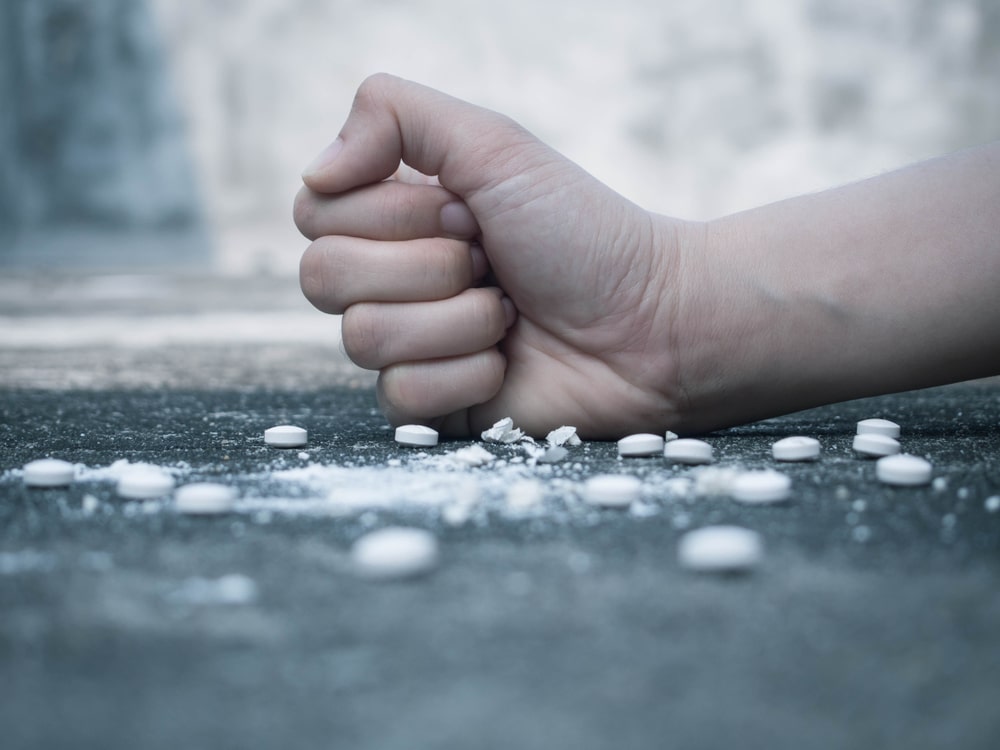Millions of people in the U.S. suffer from anxiety disorders and epilepsy. For these patients, benzodiazepine drugs can be a godsend. But unfortunately, benzodiazepines have a high abuse risk profile. Not everyone who is dependent on a prescription benzodiazepine is addicted, but addiction to this type of drug can be painful and deadly. Why are benzodiazepines like Klonopin so addictive, and how can someone overcome Klonopin abuse with medical treatment? The following article will explore the effects of Klonopin, signs of abuse, and treatment options.

What is Klonopin?
Klonopin is a popular prescription benzodiazepine drug that is used to treat epileptic seizures, anxiety, and panic attacks. Even though Klonopin is highly effective, it is usually prescribed as a short-term treatment option. Klonopin has a small tolerance window, meaning a user can quickly need higher and higher doses of Klonopin to get the same effect. This effect can lead to abuse and addiction.
Patients who take Klonopin for longer than four weeks are at-risk of experiencing withdrawal symptoms if they stop taking the drug suddenly. Tapering off the Klonopin dose safely, and gradually under medical supervision can prevent sudden, painful withdrawal symptoms.
Benzodiazepines like Klonopin interact poorly with other substances such as alcohol, narcotics, and some antidepressants. When someone takes Klonopin along with these other substances, they can experience a heightened effect of Klonopin and any other substances they’ve taken. Combining Klonopin with other substances significantly increases the risk of overdose.
What are the effects of taking Klonopin?
Klonopin gives users a sense of intense relaxation, mild euphoria, a reduction in anxiety, and also slowed reflexes. Some people can become addicted to these effects.
What are the signs of Klonopin abuse?
- Excessive daytime sleepiness
- Lack of coordination
- Feeling dizzy or lightheaded
- Slowed reactions
- Slurred speech
- Trouble remembering things
- Depression and irritability
- Digestive problems
- Aggressive behavior and paranoia
Because Klonopin is usually prescribed for short-term use to prevent addiction and tolerance, there are other behavioral symptoms of Klonopin addiction as well. These include “doctor shopping” where a user will try to obtain prescriptions from multiple physicians. Other symptoms include “losing” a prescription or taking Klonopin from a family or a friend. Mixing Klonopin with alcohol to produce a heightened effect, or taking more and more Klonopin than is safely prescribed are all signs of addiction and abuse.
Who is most likely to abuse Klonopin?
Young adults between the ages of 18 and 25 are the most likely to abuse prescription drugs like Klonopin. However, drugs affect the brain the same way from one person to the next. Anyone is at risk of becoming addicted to Klonopin if they do not take it as directed.
How severe are Klonopin withdrawal symptoms?
Withdrawing from benzodiazepines suddenly can be dangerous. Up to 30% of people who are addicted to drugs like Klonopin and stop taking the drug cold-turkey can experience seizures. For someone to come down off Klonopin safely, they will need to slowly taper off the drug, or replace Klonopin with an alternative, low-dose benzodiazepine. A supervised medical detox center can offer patients a safe, effective tapering-off strategy for Klonopin. Other Klonopin withdrawal symptoms include:
- Headaches
- Nausea
- Sweating
- Anxiety
- Shaking
- Insomnia
- Muscle pain and stiffness
- Hallucinations
- Irritability
- Problems concentrating
Also, Klonopin is often abused in tandem with other substances, such as alcohol, to heighten the effects. For people who are suffering from addiction to multiple substances, the withdrawal timeline can be especially difficult. Once they quit taking Klonopin and other drugs or alcohol, they will experience the unique withdrawal symptoms associated with each substance. It’s critical for recovery that patients can withdrawal in a safe, supervised environment to prevent potentially dangerous withdrawal side effects or a relapse.
The timeline for Klonopin withdrawal will vary depending on several factors:
- How long someone was addicted
- If they are addicted to other drugs or alcohol
- If they abused high doses of Klonopin
Klonopin has a half-life of up to 50 hours. For most people who withdraw from the drug, the most intense physical symptoms will peak around the second week after cessation before dissipating. However, emotional withdrawal symptoms can linger for several months. It’s critical that patients have a strong support network in place during this vulnerable part of the recovery process.
Generally, Klonopin withdrawals will be mild for the first one to seven days. The second week will be the most intense, while symptoms begin to subside by the third week. However, it’s critical to note that for those attempting to recover from Klonopin withdrawal alone, psychological symptoms can intensify at the end of the first three weeks. Without an effective tapering off schedule, patients can experience hallucinations or seizures. Because Klonopin withdrawal is intense and potentially dangerous, it’s important that people with an addiction to the drug consult a doctor before they attempt to quit.
What does Klonopin treatment look like?
First, patients need to seek medical attention before they attempt to quit Klonopin. It’s never safe to stop taking the drug cold-turkey. In a medically supervised setting, a doctor will craft a tapering off schedule for the patient, where they will receive ever-decreasing doses of the drug over several weeks. This prevents the patient from experience intense and dangerous withdrawal symptoms.
If a patient enters treatment addicted to other drugs, this will need to be addressed. They may need to take other medications to prevent dangerous withdrawal side effects.
After a patient has safely weaned off Klonopin, they can attend an inpatient or outpatient treatment facility. It is during rehab that they will explore the underlying reasons for drug addiction, and how to prevent a relapse from occurring. Patients usually benefit from a combination of one-on-one talk therapy and group settings. Therapy gives patients access to tools that can help them deal with stress and avoid triggers associated with drug use. Patients are given a framework for living a drug-free life and therapy also puts them in touch with crucial resources that can help them navigate the transition from living in a drug-free, structured environment to living on their own.
Drug addiction is a lifelong illness, but it is treatable. With help from Mission Harbor, patients can maintain lifelong sobriety. Please contact one of our licensed drug treatment counselors today to explore your addiction treatment options.
Types of Rehab
Those suffering from a Klonopin addiction have two primary rehab types that they can choose from, including:
Inpatient is generally recommended for Klonopin because it ensures that people are in a neutral environment and have the support that they need to deal with their recovery and any comorbidities, such as anxiety or depression.
With an inpatient program, people live at the facility and have their days scheduled so that it is easier to get all of the necessary treatment and support. An outpatient program also provides treatment and support, and it’s a better option for people with lesser forms of addiction or need to go to work or school while receiving treatment.
Types of Therapy
Different types of therapy are generally used to treat an addiction to Klonopin and they may include:
Talk Therapy
This type of therapy helps people to open up about their emotions and feelings, and the daily stressors that trigger negative issues. The therapy can help people to identify their triggers and learn how to use them to create a positive response. For example, instead of turning to Klonopin to deal with difficult things, they learn how to use a positive hobby to cope with stress.
Group Therapy
Group therapy allows people struggling with addiction to interact with others who are going through the same thing. By sharing experiences and listening to others, it lets people know that they are not alone on the road to recovery. This can be beneficial for anyone, but especially those who might not have a strong support system at home. In addition, this type of therapy can also help people with skills development that allows them to work toward long-term sobriety.
Cognitive Behavioral Therapy
This is a structured form of therapy that allows people to gain awareness of their negative or inaccurate thinking. As a result, they start to see challenging situations in a more positive light so that they can use them for good. When they learn how to better manage emotions and cope with stress, these issues are less likely to cause them to relapse. The way this therapy works also makes it a good option for those suffering from addiction in addition to other types of mental illness.

Preventing Klonopin Addiction Relapse
Now that you know the answer to, “is Klonopin addictive” it is imperative to maintain your sobriety after leaving a Southern California rehab program. When you have aftercare, there is a reduced risk of relapse. Part of this care is ongoing therapy so that you can work with a professional who can aid you in developing the necessary skills to cope with your triggers so that they are less likely to cause you to relapse.
Is Klonopin addictive? Yes, but there is hope. Our Southern California rehab facility is ideal after you or a loved one complete a detox program. Call us today to explore your options and to schedule your consultation so that you can work toward recovery.
Updated on 12/24/20
The facilities at Mission Harbor are staffed with trained experts to best assist patients with their mental health issues. We are capable of dealing with any and all cases with a licensed staff, equipment, and approved techniques. Our mission is to help those who want to help themselves, and we support your decision in seeking help.
Get Help Now
Alcohol addiction is extremely difficult to overcome on your own.. Seek specialized help and let professionals guide you in your recovery.

